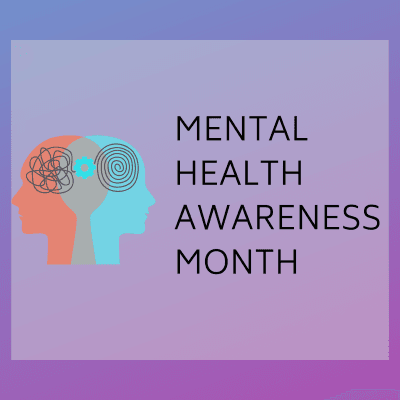
As we observe Mental Health Awareness Month this May, the New York State Coalition Against Domestic Violence (NYSCADV) urges our communities to reflect on the profound connection between mental health and domestic violence. Our mental well-being shapes every aspect of our lives — influencing how we build relationships, perform at work, and experience a sense of safety and fulfillment. Yet for many survivors of domestic violence, mental health challenges are compounded by abuse, creating complex, lasting impacts.
Mental health forms the foundation of how we think, feel, and act. While mental health conditions can arise from a mix of genetics, environment, and life experiences, stigma often prevents people from seeking the support they deserve. According to the National Alliance on Mental Illness (NAMI), only 43% of adults experiencing mental illness receive treatment each year. Mental Health Awareness Month calls on all of us to dismantle these barriers and encourage compassion, understanding, and access to care.
When it comes to domestic violence, the stakes are even higher. Domestic violence — a pattern of coercive, controlling behaviors that may include physical, emotional, sexual, and financial abuse — often leaves invisible scars. Survivors may experience depression, anxiety, post-traumatic stress disorder (PTSD), and other lasting mental health effects. At the same time, individuals living with mental health conditions may be at greater risk of experiencing abuse.
The numbers are staggering. The National Domestic Violence Hotline reports that 1 in 4 women and 1 in 9 men in the United States have experienced severe intimate partner violence, sexual violence, or stalking. Survivors are left not only to heal physical wounds but also to navigate the long-term emotional and psychological consequences of abuse.
Understanding the intersection between mental health and domestic violence is critical. It demands that we approach support services holistically — offering trauma-informed mental health care, advocating for survivor-centered systems, and addressing the root causes of violence, including power and control.
This Mental Health Awareness Month, NYSCADV calls on all of us to recognize these intersections and to stand in solidarity with survivors. Together, we can work toward a future where healing, safety, and justice are not out of reach — but fully within our grasp.
Here are some resources to assist advocates in their work:
- #MoreThanEnough Campaign, National Alliance on Mental Health - Help raise awareness this May using their social media toolkit.
- Self-Care Toolkit: Recognizing the importance self-care plays in an individual's mental health, NYSCADV has compiled a list of resources for advocates and organizations on topics including self-care, well-being, and resilience. Included are webinars, toolkits, and additional resources to help advocates take care of themselves and support the work that they are doing.
- Resources for Advocates – Trauma-Informed DV Advocacy, National Center on Domestic Violence, Trauma & Mental Health: This training and resource center contains webinars and resources to support domestic violence advocates in helping survivors with mental health, trauma and substance misuse.


